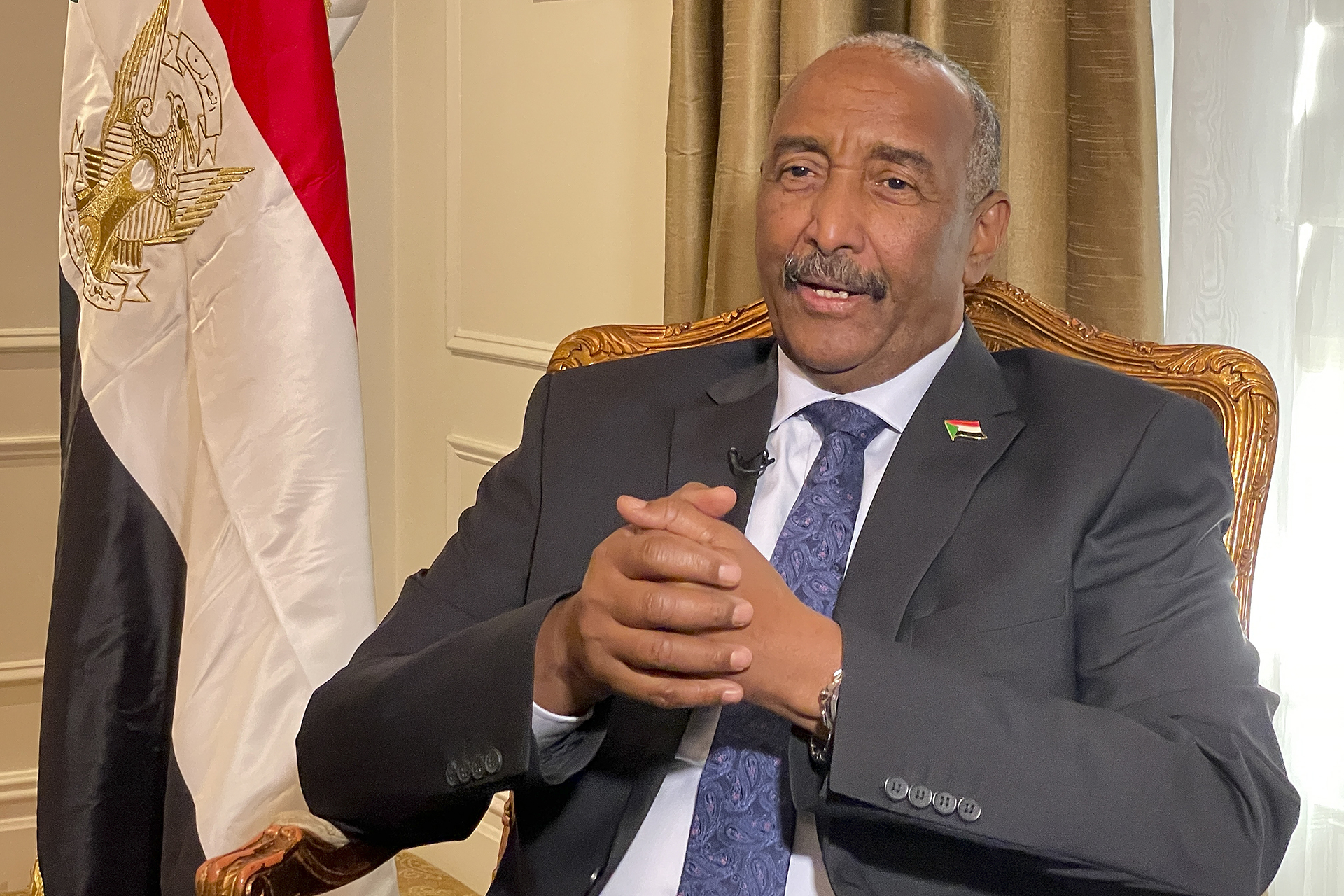The head of the Sudanese Sovereignty Council, Abdel Fattah Al-Burhan, announced Friday that he will not run in the upcoming elections, in statements to the Associated Press, during which he touched on several internal issues related to the position of the army, in addition to the relationship with Israel.
During the interview, which took place on the sidelines of his presence in New York, in the United States to attend the meetings of the United Nations General Assembly, Al-Burhan stressed that the army will be subordinate to the government if it is elected, and will not maintain a higher position.
Al-Burhan also stressed that he will not run in the upcoming elections for a civilian-led government, stressing that he has no desire to present himself as a candidate and does not want to continue this work, but he did not provide a timetable for when the elections will be held until he relinquishes power.
Since October 25, 2021, Sudan has witnessed popular protests calling for the return of democratic civilian rule and rejecting Burhan's exceptional measures, which the rejectionists consider a "military coup".
The protesters rejected Al-Burhan's seizure of the ruling, which took place after the army dissolved the transitional government led by Abdullah Hamdok, as well as the Sovereignty Council.
Following the demonstrations, soldiers opened fire on the Sudanese protesters, killing a number of them and arresting dozens.
In this regard, Al-Burhan said - during the interview - that no one killed the protesters in the way it is being portrayed, but the protesters clashed with the police, who dealt with them under the law to protect public property.
In another context, in response to a question about whether he will visit Israel, Al-Burhan said that the basis of relations is reconciliation, and that he would accept the invitation if he received it.
Yesterday, Thursday, Al-Burhan said in a press statement that "no date has been set for the elections, but the army will not wait forever."
Al-Burhan indicated that he agreed with a statement made recently by his deputy, Mohamed Hamdan Dagalo (Hemedti), that civilians should appoint a prime minister and head of the Sovereignty Council, saying that this is in line with what he himself said before.

